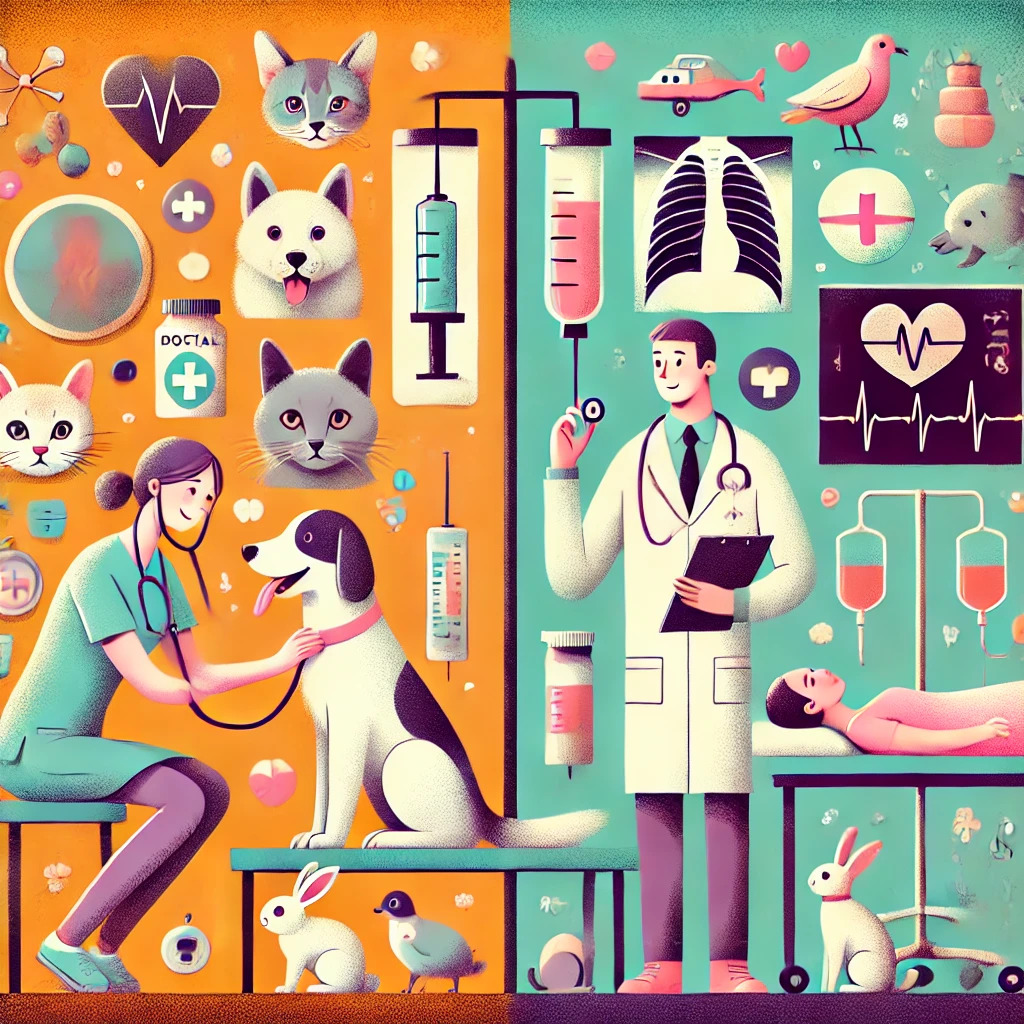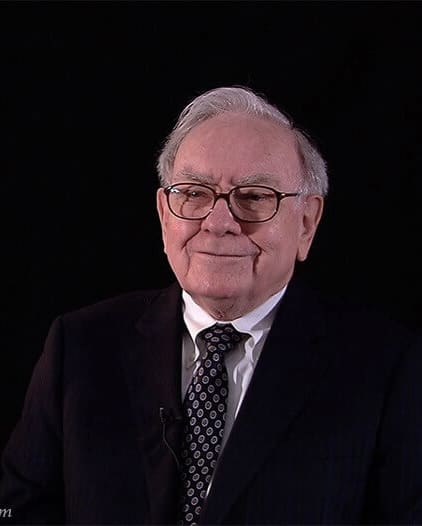“…but we as veterinarians have to be everything. As far as medicine goes, we have to be a radiologist, a dermatologist, an allergist, orthopedic person. We have to be able to interpret blood work. We have to be able to deal directly with people and just deal with their emotional needs. So we have to become a social worker too. It is by far and away the hardest job that I can think of and you don’t appreciate it when you’re doing it.” Dr. Larry Gerson
When it comes to family business, two things exist: family and business. In the case of Point Breeze Veterinary Clinic, the multi-generational clinic is a great study of old guard-new guard. And if changes in the state of veterinary medicine were so easy to decode, costs would be down, wait times would be non-existent and morale would be high. But as we continue to confirm in our reporting over the last few weeks, this is not the case. However, looking at Point Breeze Veterinary Clinic through a generational lens may answer a few questions for all of us. Nothing was off limits during our conversation and we were able to discuss everything from leadership succession and cultural shifts to industry evolution. Thank you Dr. Berger (SB) and Dr. Gerson (LG) for agreeing to speak with us!
PAD: What changes have you seen in your practice as it passed through to the current generation?
LG: I’ll call myself an old timer, so we just practiced veterinary medicine and the business followed. She (SB) practiced more efficient business management techniques, things like evaluations, coaching, mentoring or training. It seemed to come to her easier.
SB: I think we’ve changed a lot both in terms of the way the practice runs from things like software to becoming more electronic friendly. Getting away from paper records and being more technology driven was a big change.
It was clear from the outset that what today’s generation deems mission critical, i.e. technology, was, all things considered, the main delineation between yesterday and today. And yet there was one thing that was 100% the same over two generations equally for both Dr. Gerson and Dr. Berger:
PAD: What’s the most challenging part of owning a vet practice?
SB: Managing people is a challenge, both staff and clients. You have a lot of personalities. People sometimes have different goals. Everyone has different triggers and I think trying to keep everyone happy is, for me, challenging.
LG: The single most challenging thing was to find, keep, motivate, talented people. I’ll borrow a phrase from a friend of mine who calls his practice the dream team. I have a dream team, too. We have people working at our practice that have worked there 40 years, 30 years, 20 years.
A study conducted by the AVMA showed that employees at privately owned practices were typically happier with their jobs than those at corporate owned. “A total of 896 responses from associate veterinarians working full time were received, of which 286 (31.9%) reported working in private practice and 610 (68.1%) in corporate practice. Fifty-five percent of participants indicated a preference for working in private practice compared to 12% preferring corporate practice.”
What was obvious to us by speaking with both Dr. Berger and Dr. Gerson, at the end of the day, they cared first about the pets and their owners and the business of veterinary medicine was secondary.
But the veterinary business explosion happened as a result of demand. The stress on the system is real as we have been discussing over the last few weeks, Dr. Gerson pointed out:
LG: You know that even though we have 4 emergency clinics, they’re all trying to hire the same person. They’re all at capacity.
Hopefully Pets After Dark can have an impact on solving this problem in due time. Handling client calls to help pet owners decide what, if anything, they should do with their sick pet after hours remains our primary goal. Should they go to an ER? Should they see their vet tomorrow? We can help answer these questions. And as the terrain continues to shift we remain curious about what motivates this new generation of veterinary professionals and where we are headed.
PAD: Is there anything specifically that you would point to and say: “This was a most significant change” ?
LG: One is that when I graduated school a third of the class was female. Prior to that there were less females. And now there are many more females to the point where the majority of practitioners who graduate are women. They’re great veterinarians. They really are because they mix intelligence and compassion together and they are probably smarter than we were.
Last week we showed data that more women were entering and practicing veterinary medicine today than ever before. Dr. Berger discussed the beginning of her career as a new veterinarian, new practice owner and above all, a new mother:
SB: It was kind of complicated because I had Ellie, my firstborn, when I was two years out of school. And she was a toddler when I started taking over the business and then shortly thereafter I had Henry. I think it was a little bit of a challenge balancing family / work stuff. And then overcoming things at work where people that had known me for decades and saw me grow up all of a sudden, I went from that little kid in the office to Whoa! She’s the one who’s making decisions. It was a lot going on at once!
LG: One little tidbit that I heard once is that the the way you treat your employees is the way they’re going to treat your clients
PAD: Makes sense. Because that’s the culture you’re creating. Right?
LG: Yes.
PAD: Creating that and that culture transfers to the next person that they see.
LG: Right. When we see a client at our practice, the goal is to take care of that client’s grandchildren.
And this is a concept completely lost when money is the driving factor when caring for pets. If the shift focuses to making money, your grandkids will likely not hear about the compassionate work you were doing! A dictate to make quotas, see more pets, run more tests, etc., is one of the main factors driving up the cost of veterinary medicine. But with more technology, especially in testing equipment, Dr. Berger sees better access to more information more quickly. And this ultimately benefits the pet owner. So does corporate involvement help or hurt the field of veterinary medicine? This is a question that has no definitive answer and it might be some combination of yes and no.
PAD: What influence do you think corporate participation has had on veterinary medicine? Is it good or bad?
LG:So they really, really pushed the limits and they also were able to, with economies of scale along with raising prices, push the profit margin, too. Corporate ownership isn’t bad or good. It’s a combination of the two. Some of the corporate practices, practice excellent quality medicine. Some of the emergency specialty clinics practice at the top tier of veterinary medicine, actually providing services above and beyond what a veterinary school might even want to or try to provide. Other corporate practices are basic practices that may not provide surgery , euthanasia, overnight hospitalization or any hospitalization. They might do things on a very, very basic scale, basically providing vaccines and simple care.
And the other side of that coin:
SB: I think that the smaller private practices do get the short end of the stick because we are paying the price that we have access to and corporations oftentimes are paying a significantly lower price for products. I think corporate medicine’s job is to make veterinary medicine profitable, right? And sometimes that conflicts with what’s always in the patient’s best interest. I don’t think it’s hard and soft but sometimes the bottom line becomes more important.
PAD: Hot question here: Did you or would you ever entertain selling your practice to corporate?
SB: No, not in my thought process. Not unless I absolutely had to for some reason. Just because I don’t feel like it’s in my staff or patient’s best interest.
When discussing the impact that rising costs have had on veterinary medicine and whether or not this has impacted her staff positively or negatively, Dr. Berger noted that this allowed her to stay competitive with the market wages in addition to the rising costs of everything from equipment to drugs.
SB: I would hope that my staff would say that they’re happier now than they were 15 or 20 years ago. I try to make sure that everyone is compensated fairly. I try to make sure they are well taken care of. And that the things that they need, they have.
PAD: Where do you see veterinary medicine 10, 15, 20 years down the road? Is there anything in your in your vison that you think will happen or take place?
SB: I believe there’s going to be a continued huge shift towards technology driven medicine. We see it already with digital microscopes that are scanning AI looking for cells. AI taking notes in the exam rooms. I think there’s going to be a huge technology driven shift towards diagnostics.
PAD: Any other comments or thoughts you want to share? Thoughts about veterinary medicine or how you feel when you practice?
SB: I was very lucky to be put in a position where I had the opportunity at a fairly young age to be part of running a practice and now fully running a practice and having the opportunity to put in place the things that we do to keep the culture at work the way it is. I try to try to keep the staff as happy as possible. We do a lot of little things that are different and when you put it together make a big difference.
Once again, we are reminded that patient care and compassion are the driving force behind Dr. Berger’s daily motivation. This is something that clearly transferred through the generation started by Dr. Gerson as he reported during our conversation while reflecting on retirement:
LG: You know I miss my clients that I considered my friends. Friends/clients like you and I can think of dozens and dozens of people that I would see every year. Some of these people I knew from high school. Some of these people I knew along the way. Some of them are neighbors . And it was giving up the friendships from when you see people on a regular basis, really your clients become your world. That was hard!
When my daughter came to me in college and said “Dad, I think I want to be a marine biologist”, I suggested to her that she should get a veterinary degree so she can be the lead of the veterinary team of the Marine Biology Department. She thought that that was a good idea. Once she applied to veterinary school I knew that she would follow in my footsteps, which made me probably the happiest dad in the world!
It was actually easy to walk away and say, Steph, this is the key. Can I keep one?




